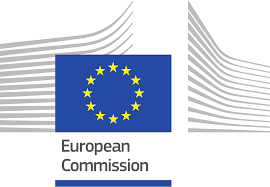PRESS RELEASE : Trafficking in human beings – Commission proposes stronger rules to fight the evolving crime [December 2022]
The press release issued by the European Commission on 19 December 2022.
Today, the Commission proposed to strengthen the rules that prevent and combat trafficking in human beings. Every year over 7000 people become victims of human trafficking in the EU. That figure can be expected to be much higher as many victims remain undetected. The yearly cost of trafficking in human beings in the EU reaches EUR 2.7 billion. The majority of victims are women and girls, but the share of male victims is also on the rise particularly for labour exploitation.
Forms of exploitation have evolved in recent years, with the crime increasingly taking an online dimension. This calls for new action at EU level, as traffickers benefit from opportunities to recruit, control, transport and exploit victims, as well as move profits and reach out to users in the EU and beyond.
The updated rules will provide stronger tools for law enforcement and judicial authorities to investigate and prosecute new forms of exploitation. For example, by making sure that knowingly using the services provided by victims of trafficking constitutes a criminal offence. The Commission’s proposal put forward mandatory sanctions against companies for trafficking offences and not only individuals. It also aims to improve procedures for early identification and support for victims in Member States, particularly through the creation of a European Referral Mechanism.
In particular, the updated rules will include:
- Forced marriage and illegal adoption among the types of exploitation the definition of the Directive covers. This will require Member States to criminalise such conduct in their national criminal law as human trafficking;
- Explicit reference to human trafficking offences committed or facilitated through information and communication technologies, including internet and social media;
- Mandatory sanctions for legal persons held accountable for trafficking offences. This covers excluding them from public benefits or by temporarily or permanently closing the establishments where the trafficking offence occurred;
- Formal National Referral Mechanisms to improve early identification and referral for assistance and support for victims, which will create the basis for a European Referral Mechanism by the appointment of national focal points;
- Stepping up demand reduction by making it a criminal offence for people who knowingly use services provided by victims of trafficking;
- EU-wide annual data collection on trafficking in human beings to be published by Eurostat.
Next steps
It is now up to the European Parliament and the Council to examine the proposal. Once adopted, Member States will have to transpose the new rules into their national law.



